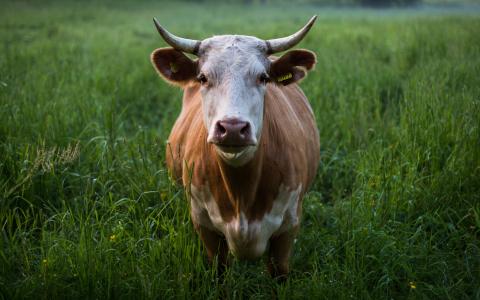
(Tri-State Neighbor) - Dear Michael: We live in an area of the state which is grasslands. Compared to most of the states, the only way to make a living out here is with cattle – livestock – and during years like 2021 during the drought, we had to pay for most of our feed to get through the year. We have considerable acreage, but to us it is still only worth $250 to $500 per acre.
Our problem is people from the city are buying ranches just to look at the pretty ground. They maybe visit three or four times a year, do some hunting, but then go home to brag about the big ranch they own. This has been driving prices up for everyone.
We had our ranch before this all started so we are not affected by these price hikes like beginning farmers. However, we have five children and all five of them have had to take off-farm jobs in order to make ends meet. As it is, it is barely enough for my wife and I to get by.
One of the sons started an odd jobs business. He has a Bobcat, a trailer, does some concrete work and keeps surprisingly busy. He is the only one who has shown any interest in the ranch at all, and we would like to have him have a shot at it. He is still young and single, but he is a hard worker. How do we do this so that is fair to everyone? – Big Assets, Low Income.
Dear Big Assets: At the age your son is right now, and being single, his life could lead off in many different directions. Depends on if his construction business grows, or if he finds he makes more money there with less work than livestock, or any number of things.
For now, until he matures into the role, you might have a will that states your land will go into trust upon your second death. The trustee should be a bank trustee who partners with someone you know and will understand the operation.
You die and he takes over the cow/calf operation, but then what if he starts borrowing money to buy non-farm machinery – another Bobcat or any type of construction equipment? It’s likely you don’t want him to use the ranch as a piggy bank to build another lifestyle.
Unfortunately, the ranch income is not big enough to support more than one child which means the other children will have to accept he gets first crack at it. But they need to know the rest of the deal, too. They will tell your trustee if their ranching brother sells off all of the livestock and machinery and reinvests in construction or other non-farm enterprises. Word will move surprisingly fast to the trustee.
One would like to say that if he changes his mind about ranching full-time, that you could just give this chance to the next person in line and name all your kids in order as to who gets the next chance.
This gets a little dicey unless he declares immediately after you die, he does not want to ranch. Then, we still have all the livestock, machinery, feed, etc. still on the farm.
If he waits five years, most of this stuff could “disappear,” which would make it extremely difficult for another child to step into the ranching operation. If it is decided not to be viable at that point, the trustee should then plot the property and give each of the children a separate plot in the land.
Do not give them joint ownership.
If by some miracle one of the children walks in and has secured beginning farmer loan proceeds or some method of replacing assets, then each of the children can then present their plan to your trustee to see which is most feasible.
The ranching child must stay on the ranch until they are age 50 or at least 15 years beyond your second death.
This sounds like a long time, but you want to be certain the child receiving the ranch will actually ranch.
By Michael Baron
October 28, 2023



